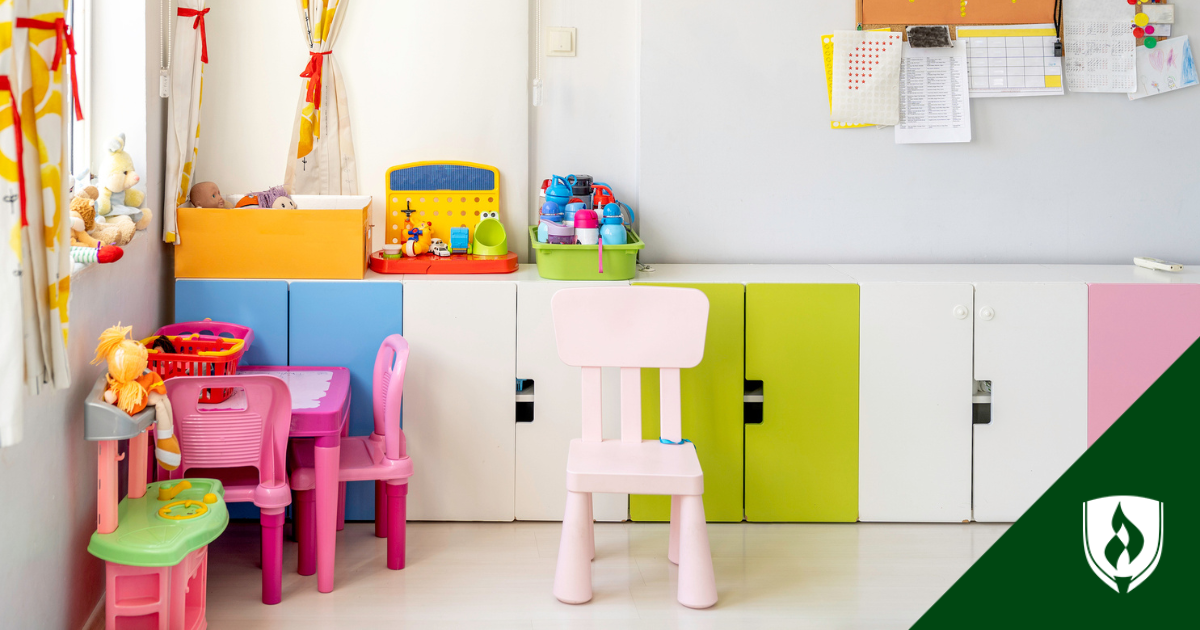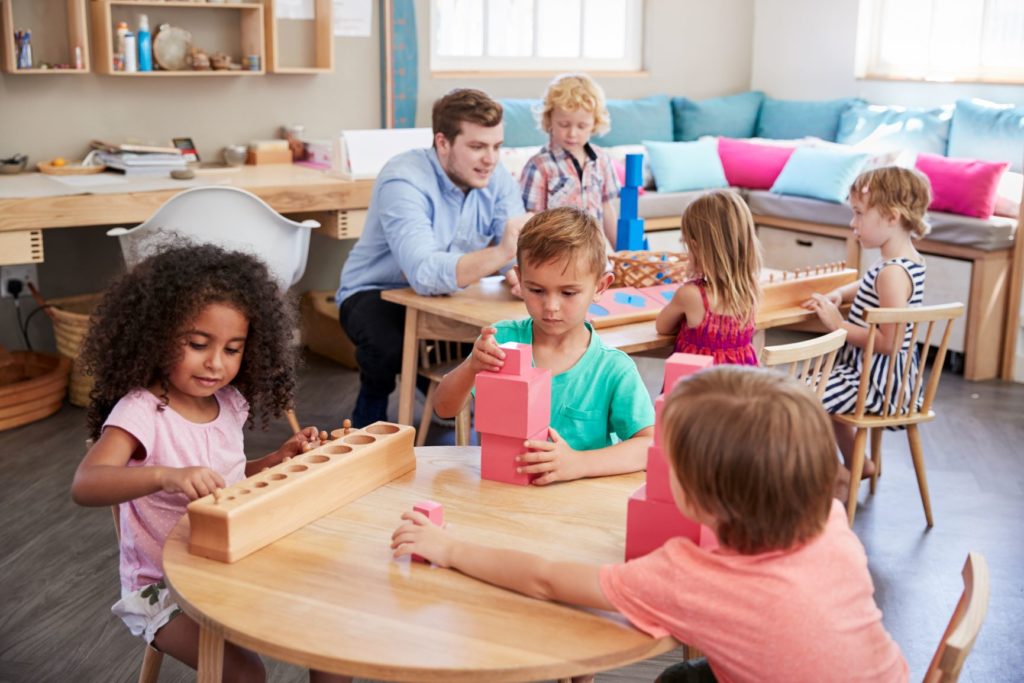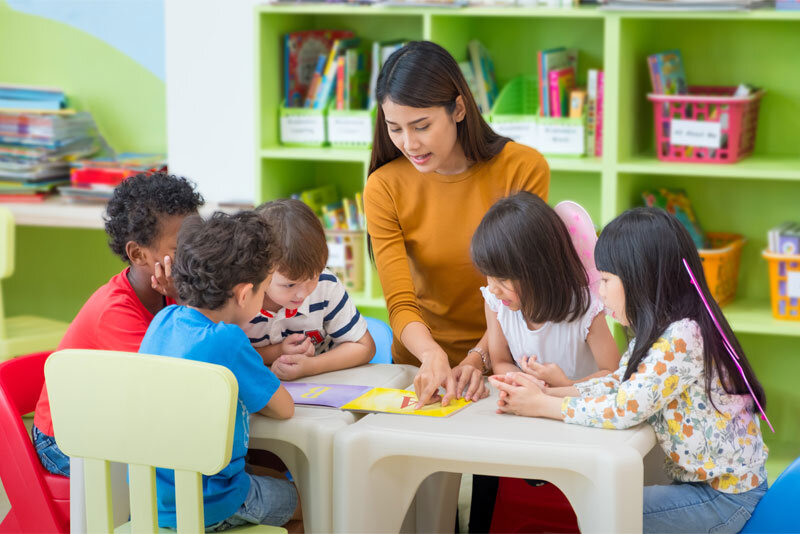How Childcare North York Inspires Cognitive And Emotional Growth
Wiki Article
The Function of DAYCARE in Fostering Social Skills and Very Early Discovering
Childcare offers as a considerable setting for young kids, facilitating essential social communications that advertise early knowing. In this structured setting, youngsters engage with caretakers and peers, establishing crucial communication and cooperation skills. As they navigate play and different activities, they find out to settle conflicts and construct emotional knowledge. Understanding the subtleties of these communications reveals the profound impact day care has on a youngster's development, shaping their future relationships and scholastic preparedness. What particular skills do youngsters get in this setup?The Value of Social Interaction in Childcare
While numerous moms and dads identify the significance of early childhood education and learning, the role of social communication in childcare is frequently taken too lightly. Daycare settings give children with important chances to engage with peers, promoting vital social abilities. During these formative years, kids find out to browse various social dynamics, such as sharing, participation, and problem resolution. Engaging with diverse age teams and personalities enhances their capability to adjust to different settings and create empathy in the direction of others.
Building Interaction Skills With Play
Play offers as a powerful tool for kids to construct critical communication skills in day care settings. With various play tasks, youngsters engage in conversations, reveal their thoughts, and find out to listen to others. Parlor games, for example, encourage them to use language in various contexts, promoting vocabulary development and understanding of social hints.
Storytelling during play allows children to convey emotions and concepts, aiding them create narrative abilities and self-confidence in their spoken expressions. In general, play not just functions as a delightful pastime but also as a crucial system for creating the interaction abilities necessary for effective social communications in later life.
Motivating Participation and Synergy
Collaboration and synergy are vital abilities that children can grow in day care atmospheres. Through various team tasks, such as developing projects or joint video games, children learn to share responsibilities and pursue common goals. These interactions foster an understanding of the significance of listening to others, negotiating roles, and endangering when essential.In day care settings, caregivers typically create possibilities for youngsters to involve in team effort by encouraging them to take part in team jobs. This not only assists children develop social bonds but likewise cultivates a feeling of belonging and area.
As they browse these cooperative experiences, kids acquire beneficial understandings right into the dynamics of collaborating with peers. They learn to value diverse viewpoints and identify that each member adds uniquely to the team effort. Inevitably, these early lessons in cooperation and synergy lay the groundwork for much healthier relationships and efficient cooperation in future social and scholastic settings.
Structured Knowing Activities and Cognitive Advancement
Structured learning activities play an integral function in cultivating cognitive advancement in little ones (Childcare North York). These activities, that include problems, storytelling, and hands-on experiments, promote essential reasoning and analytical abilities. In a day care setup, structured knowing motivates kids to engage with their peers, enhancing their ability to procedure details and understand different concepts
Through led play and interactive jobs, kids establish fundamental abilities such as numeracy and literacy. For circumstances, activities focused around numbers can assist children comprehend mathematical ideas, while storytelling boosts language procurement and understanding. In addition, structured knowing allows educators to examine developmental progress and dressmaker tasks to individual understanding needs.

Integrating a varied variety of structured activities not just advertises cognitive growth however also prepares kids for future scholastic success. By providing a well balanced environment that promotes expedition and inquiry, day care programs play an important function in forming the cognitive abilities of young learners.
Cultivating Psychological Knowledge and Confidence
Emotional knowledge and confidence are crucial parts of a child's development, matching the cognitive abilities promoted with structured understanding activities. In daycare settings, children are offered with chances to reveal their emotions and participate in social interactions, which are essential for building emotional recognition. Via led play and team tasks, youngsters discover to determine their feelings, acknowledge those of others, and establish empathy.Interaction with peers and caregivers assists to grow self-worth and durability. Positive reinforcement and inspiration from grownups empower children to take dangers and face challenges, fostering a sense of accomplishment. As they browse social characteristics, kids build self-confidence in their capacities to interact, work together, and resolve problems - Child Care Near Me. This nurturing atmosphere enables the steady development of emotional knowledge, which is essential for future interpersonal connections and total wellness. Consequently, daycare plays a significant role in fostering both emotional knowledge and confidence in kids
Frequently Asked Inquiries
How Can Moms And Dads Select the Right Daycare for Their Youngster?
Parents ought to consider factors such as place, personnel certifications, safety standards, educational program, and reviews from other parents when picking the best childcare for their child, ensuring it lines up with their youngster's developing requirements and family members values.
What Age Is Finest for Starting Childcare?

How Does Daycare Effect Kid's Actions in the house?
Daycare often favorably influences children's habits in the house by enhancing social skills, advertising independence, and encouraging psychological law (Child Care Center). Because of this, kids might exhibit better communication and participation, resulting in even more harmonious household characteristicsAre There Any Disadvantages to Daycare Participation?
Yes, there are disadvantages to day care participation, consisting of possible splitting up stress and anxiety, direct exposure to diseases, and irregular caregiving. These variables can impact a youngster's psychological well-being and adjustment in your home, impacting total household characteristics.How Can Moms And Dads Assistance Social Skills Learned at Day Care?
Moms and dads can support social skills discovered at childcare by assisting in playdates, motivating cooperative activities, modeling Child Care Center positive interactions, talking about feelings, and reinforcing sharing and communication at home, thus improving their kid's social development and confidence.Childcare offers as a substantial environment for young children, facilitating essential social communications that advertise early understanding. Childcare settings supply youngsters with vital possibilities to involve with peers, cultivating important social abilities. Play offers as a powerful medium for kids to develop vital communication abilities in childcare settings. In childcare settings, children are provided with possibilities to reveal their emotions and engage in social communications, which are essential for developing emotional understanding. Day care frequently favorably influences youngsters's habits at home by boosting social abilities, advertising self-reliance, and encouraging psychological policy.
Report this wiki page